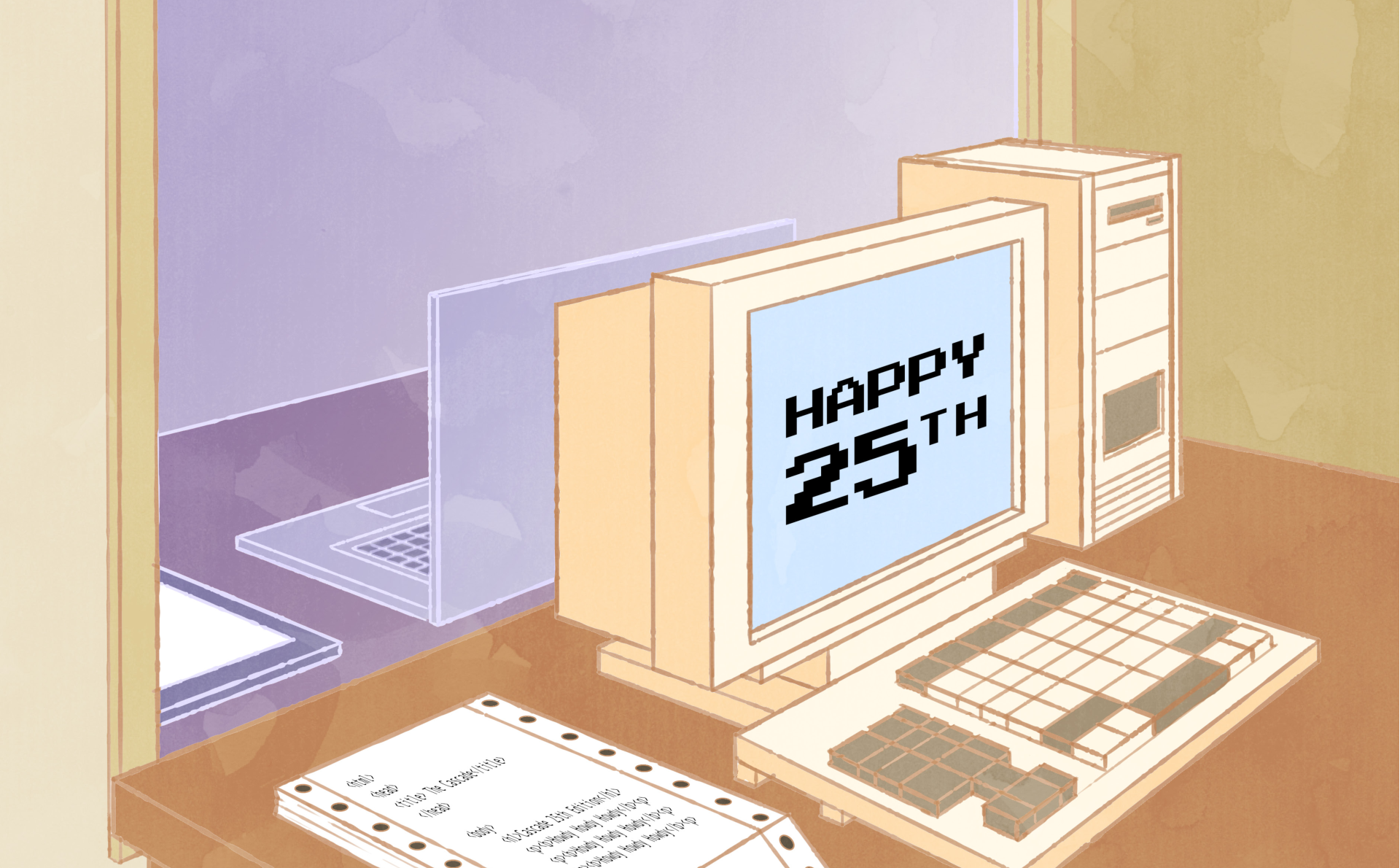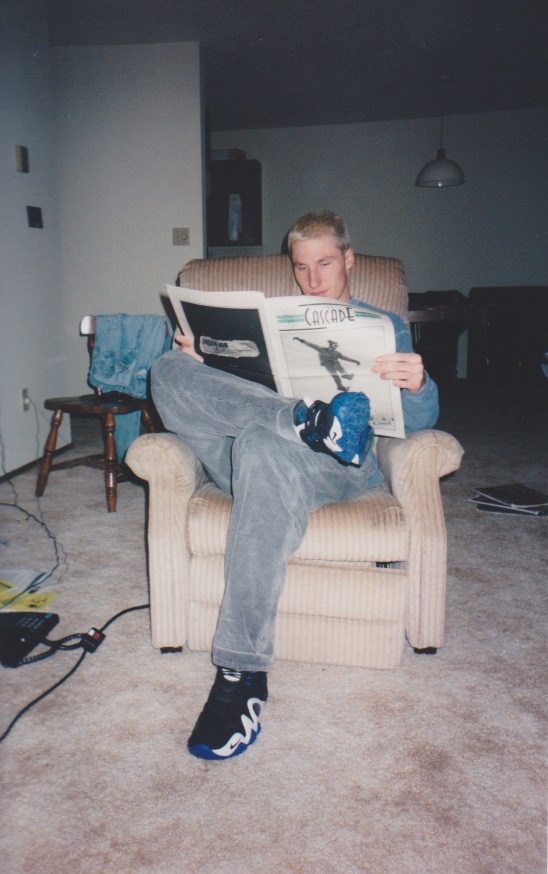 Twenty-five years ago, a star was born. Actually, there were a lot of stars born. And a lot of stars probably died too, but I am specifically talking about the paper called “The Cascade.” On Oct. 6, 1993 the first issue of this paper was published.
Twenty-five years ago, a star was born. Actually, there were a lot of stars born. And a lot of stars probably died too, but I am specifically talking about the paper called “The Cascade.” On Oct. 6, 1993 the first issue of this paper was published.
Today we distribute across three campuses, coffee shops, and work as a team of nearly 30 paid writers, editors, designers, and businesspeople. We grew. But it wouldn’t have happened without the foundation laid by Bryan Sikora in the days of the “Tri Our Angle,” the previous name of the student newspaper.
“At the end of the semester, the couple that were running the paper came to me and asked if I wanted to take over the paper,” Sikora said. “I had no newspaper experience, no writing skills, and definitely no aspiration to become a media mogul. I said, ‘Sure, why not.’”
Like many of us here, Sikora’s writing experience was minimal. His only experience with the newspaper was selling advertisements in the community.
“It was my second semester at the college and, like most students, I was looking for a job to earn some extra cash,” Sikora said. “I knew some local businesses in town that might want to advertise to college students, so I walked into the paper’s office and applied … Throughout the next few months, I sold a few ads, made a few bucks, and everything was good.”
Sikora would be the founding editor of The Cascade. What does a paper need? A paper produces content but what matters is people. And people without the right vision are akin to a mob. But the right team breathes life, and everything they do is done out of passion. And it takes someone with vision — or perhaps someone very determined and marginally stubborn — to lead an equally committed crew. Sikora posted for a crew.
“Posters went up all over campus advertising the need for editorial staff,” he said. “Within a week, four incredible people signed on: Jill Bryant, Monique Marchand, Doug Colby, and Michelle Demers. These four students and myself would eventually become the driving force behind what is now known as The Cascade.”
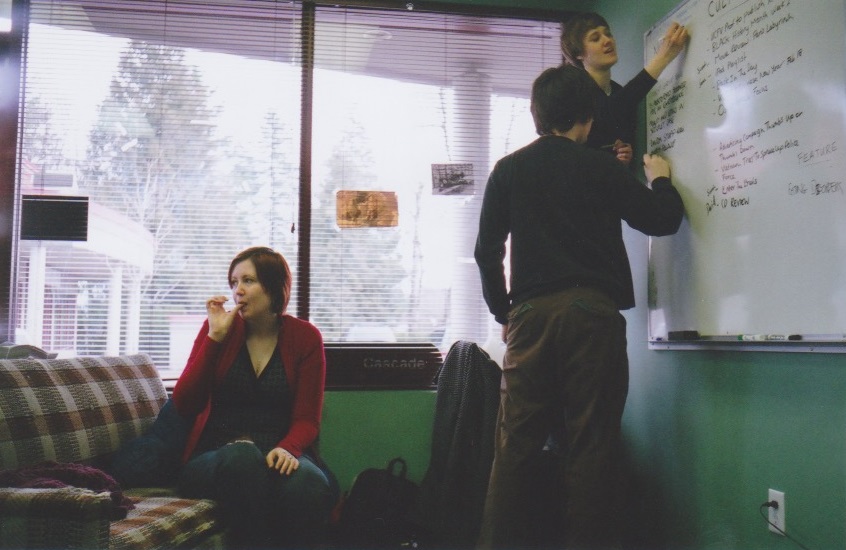
“At the beginning, I can say the only vision I had for the newspaper was to get the current issue to the printer on time — to meet our deadline. More than once we missed our courier’s deadline and had to deliver the pages to the printer in Vancouver ourselves.”
Today, we transfer files over a dedicated network directly to our printers in New Westminster after designing laying out the print edition of The Cascade digitally with Adobe InDesign.
The reality of the deadline still induces anxiety. We don’t miss deadlines, we miss sleep. It’s why gaunt students are seen hunched over laptops all Tuesday-long. They’re revising, rewriting, laying out columns, and sourcing photos. It’s weekly battle.
And in all of that there’s someone who must be the last set of eyes, the final signature, the detail-dictator, the one who stays the course and attempts to do it smoothly. For two years, that was Sikora.
“My title at the paper was ‘Editor-in-Chief.’ I was responsible for everything. I was also held accountable for everything. Between laying the paper out, editing, and delegating what needed to be done, I was there along with the rest of the editorial team doing anything and everything that needed to be done in order for us to make our deadline. I don’t recall writing many stories. I didn’t have the time,” said Sikora.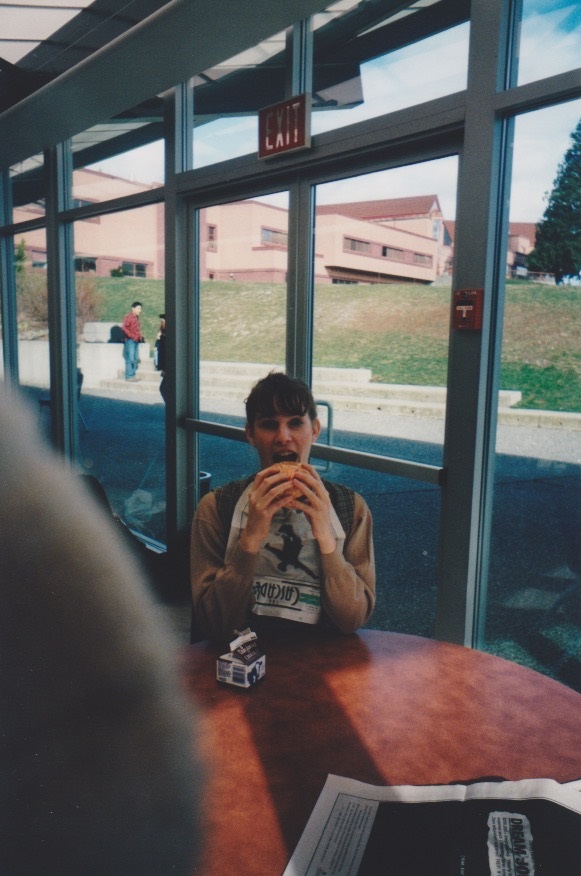
In his role, as unexpected as it was, Sikora had an opportunity to try his hand at photography in order to fill a need, and thus found another creative way to serve the paper. It was an opportunity that turned into an interest, turned into a skill, which ultimately turned into a career move. He eventually became a photography teacher later on in his life, and he wholly credits The Cascade for the direction his life took.
“No one had a camera at that time,” Sikora said. “The iPhone was just bad grammar for my phone. Thanks to an uncle of mine, the newspaper received a 35mm camera with two lenses. I became the photographer and the newspaper was able to run a few photos.”
The Cascade is student-funded and student-run. That means that there is grace for learning. That means it is a perfect place to try new things. Sometimes it’s a hit, sometimes it’s a miss, but the goal is to experiment. In that, it is a success.
“It’s a safe place to fail. At the end of the day, there is no real pressure. Whatever pressure there is is self-inflicted. This is what university is all about. This is where you try things out, where you share ideas; whether they succeed or fail, this is the place to do it,” Sikora said.
The student newspaper is an educational experience as much as it is a platform for student voices. But as with any creation released to the world, there are critics.
“One thing I’ll never forget is the red pen. After each issue was released, an envelope would arrive at the office. Inside it was the current issue with every typo, spelling mistake, grammatical error, and every other editorial screw-up imaginable circled in red. Every single issue. At the very least, I knew one person was reading the paper.”
It’s the critics we like. Knowing that there are people who have enough of an interest to read and critique our work validates the effort — sometimes conceived out of blood, sweat, and tears. The purpose is dialogue. The red pen is reciprocation. Now that exists as Facebook comments and reactions.
Every week, the editors meet to discuss the previous week’s edition. What went well, what didn’t? Were mistakes made this week? The readers’ red pen is an encouragement — sometimes a welcomed correction, sometimes a laugh — there’s no critic harsher than ourselves. At the end of it, knowing that someone reads the paper is the pixie dust that keeps us going. The paper is a product, but we are a team. When the pixie dust runs low, it’s the people behind the project that make it endure.
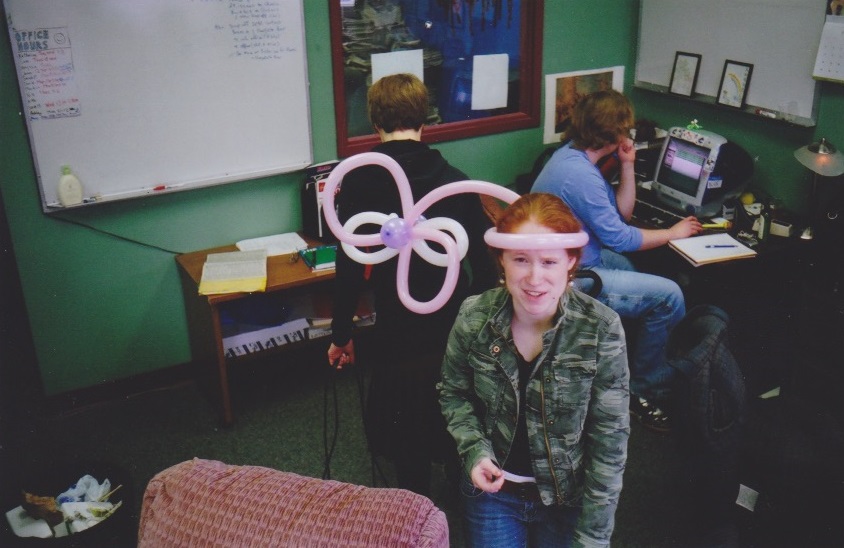
“If it wasn’t for our editorial team, the paper would have failed. Everyone contributed,” Sikora said. “Everyone brought their unique perspective, style, and hard work. I didn’t have near what they did. I wasn’t wanting to go to journalism school. I wasn’t wanting to share my opinion on world matters. I wasn’t wanting to change the culture at the college. All I wanted was for this new venture handed to me to succeed.”
For Sikora, the people he worked with had a lasting impact.
“We had a lot of people walk through our door. Some stayed a long time, some stayed a short time. But that feeling of the togetherness, of working together to produce something … it’s bigger,” said Sikora.
Those who read and contribute articles, who stop by the office to talk, have their opinions heard and concerns addressed by people who love to discuss, are also apart of The Cascade. We are a megaphone for the student body not because we want to be loud but because we hear those who want to be heard. It seems that’s a long lasting sentiment.
“We had a really old couch in our office. We had a lot of people sit on it and talk. Now looking back today, I often wonder how many people who came and sat on that couch, didn’t have someone to listen to them … We’ll never know the answer to that. Society has changed, but people still need the same thing. We had students come in, and had students talk about this and that. I think it provided a release. It provided them a place to voice their opinions,” Sikora said.
The couch is an office staple. We have several. They’ve seen the wear and tear of time and have felt the weight of many bodies sinking into them. Even within the action of producing a newspaper, many opinions and conversations come from the couch.
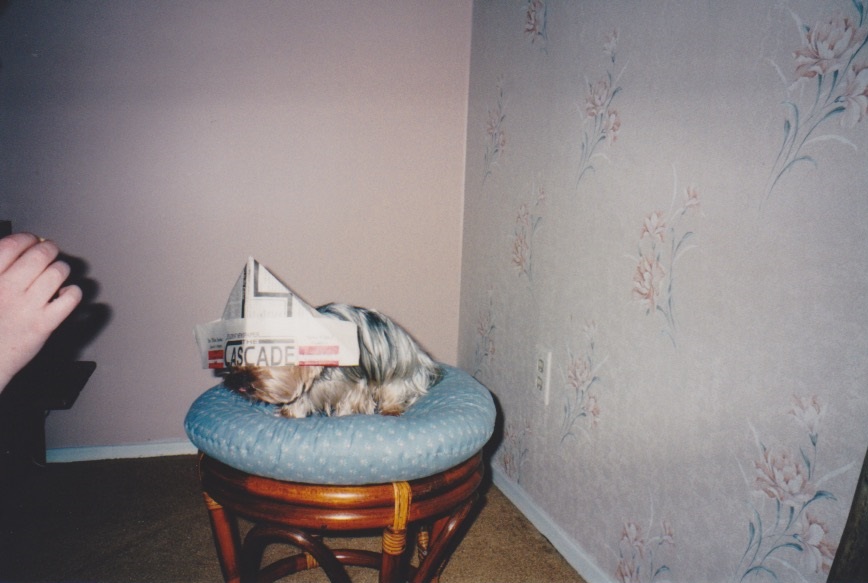
As student journalists, we work the student body. We work to report on the stories, the facts, and the events relevant to our community. We do what we do to facilitate a place where you can be heard.
Twenty-five years of The Cascade culminated into this. What’s next? Here’s to students with vision, with dedication, and the need to make something better than it is. May we set a course that 50 years may be proud of, and clear enough for rocket powered growth.

